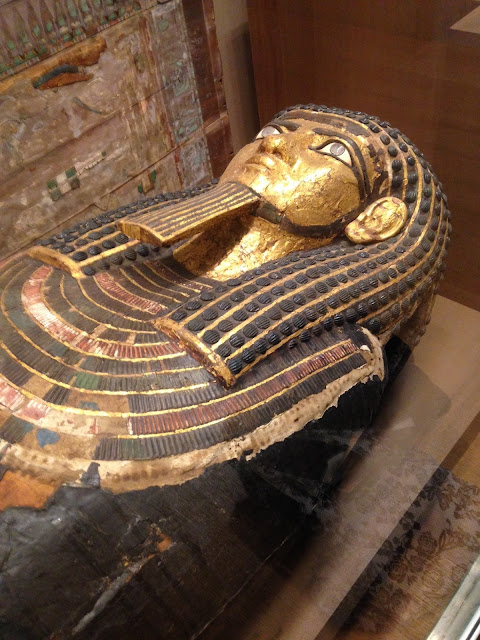Day 262- The Benkard Room
August 19, 2021
Gallery 725, the Benkard Room, is an homage to Bertha King Benkard, an early 20th century collector of American furniture whose collection was donated to the Met; some of her acquisitions are featured in this room. Among the room's contents of which I take special note: a very fancy pianoforte, which appears to have an eight-octave range; a dropleaf "Pembroke table" (named, it is thought, for the ninth Earl of Pembroke, an 18th century connoisseur - the same Pembroke for whom the college was named, I wonder?); an elaborate ivory chess set carved in India around 1800; and two candlesticks that used to belong to Joseph Bonaparte, Napoleon's brother, who, as I learn, was once King of Naples and then King of Spain, but who fled to New Jersey, of all places, upon his brother's downfall. (Apparently, he had a very fine estate there.)
Most of the furniture was made in New York City, and the pieces have no relation to the Petersburg, Virginia house from which the room (which, I would guess, measures 20 feet by 35 feet) was taken. That house was built by William Moore, a prosperous pharmacist; Petersburg itself was a wealthy community, a flourishing transportation hub through which tobacco, cotton, and other goods were shipped. In this instance, the decorative architectural features of the room interest me more than the furnishings - in particular, the fluted Neoclassical arches and pilasters that frame the windows on either side of the fireplace. The Met's description of the room notes that the tops of these arches interrupt the flow of the cornice, an indication that the room's architect probably had little formal training; nonetheless, I find the arrangement quite harmonious. In incorporating classical elements, presumably both pharmacist and architect wanted to signal their admiration for Greco-Roman culture, and I take it that these elements denote the importance of Athens and the Roman Republic for the fledgling American democracy. That said, it's impossible for the modern viewer (well, me, anyway) not to think of slavery as a linchpin of Petersburg's thriving economy - and to be reminded that Greece and Rome both endorsed slavery.





Comments
Post a Comment